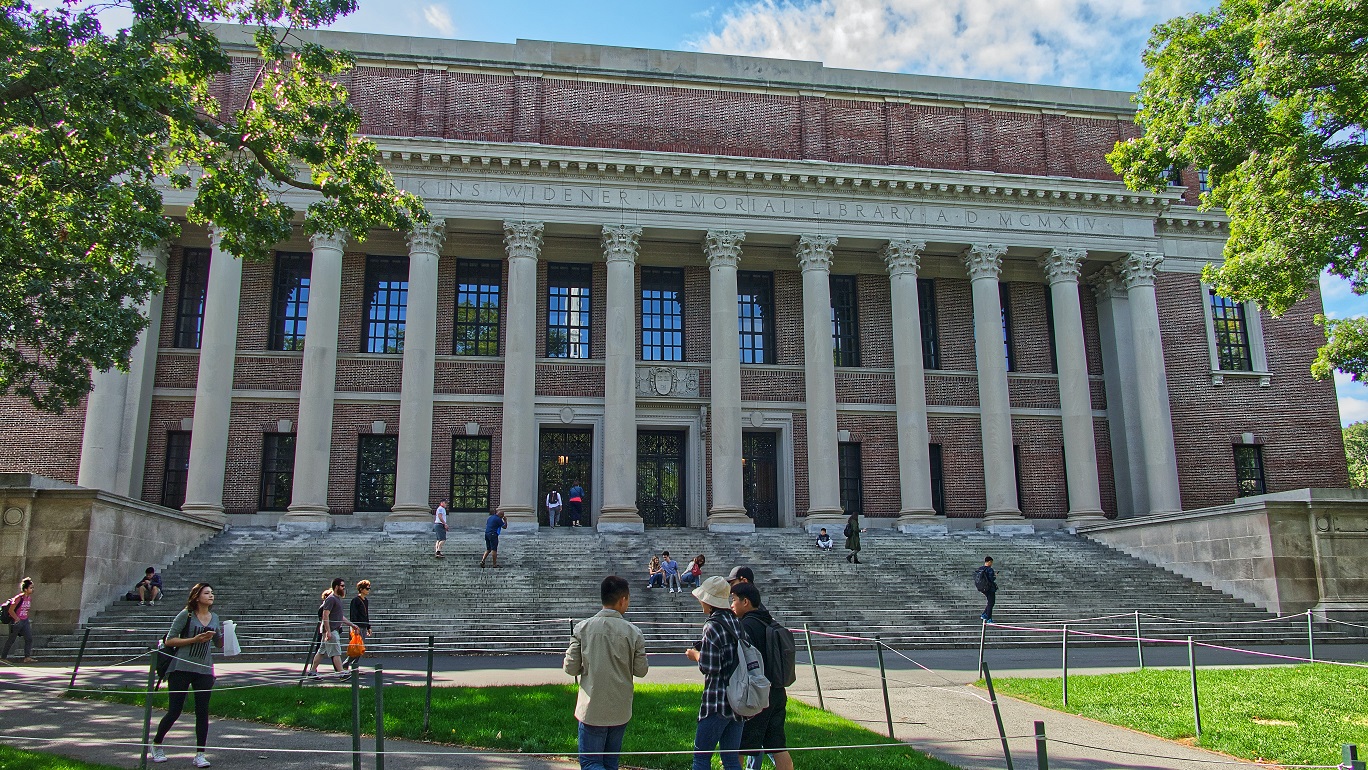Research financier the Dutch Research Council has awarded a Rubicon grant to 24 recently graduated PhD students. Three of them are from TU Delft.
Harvard is one of the universities where a TU Delft researcher gained experience with a Rubicon grant. (Photo: Pascal Bernardon / Unsplash)
Most laureates go to renowned research institutions in the United States, Germany and the United Kingdom. Other destinations include Sweden, Switzerland, Canada, Finland, Denmark and Spain.
Research topics cover the reason for the continued wage gap between men and women, the effects of chemicals on biodiversity and how to stop bullying, for example. Most researchers will be leaving for two years, others for 12 to 18 months.
Quantum computers, electrons and bone tissue
The Delft researchers Dr Mohamed Abobeih (QuTech), Dr Maurice Krielaart (Applied Sciences) and Dr Sebastien Callens (Mechanical Engineering, Maritime Technology and Materials Science) received a two-year grant.
Abobeih is going to Harvard where he will research the error sensitivity of quantum computers. Krielaart is going to the Massachusetts Institute of Technology (MIT) to answer the question whether light generated by a single electron has predictable and consistent properties. And Callens is going to Imperial College London to investigate the manipulation of bone tissue.
Important step
In total the Dutch Research Council (NWO) received 76 applications for the grant, 31.6% of which were approved. NWO believes work experience abroad is an important step in the careers of young scientists. Even more so because it is a step towards winning the highly coveted Veni, Vidi and Vici research grants.
The coronavirus crisis may still cause delays for travel abroad. The researchers who receive Rubicon funding will not leave the Netherlands “until the situation is safe for them”, writes the Dutch Research Council.
Rounds
NWO plans to hold two more rounds to award the grant, funding a total of 60 researchers. A total of 7 million euros is annually distributed among young researchers. The level of funding they will receive depends on the duration of their stay and their destination.
HOP, Josefine van Enk / Delta
Translation: Taalcentrum-VU
Do you have a question or comment about this article?
redactie@hogeronderwijspersbureau.nl


Comments are closed.